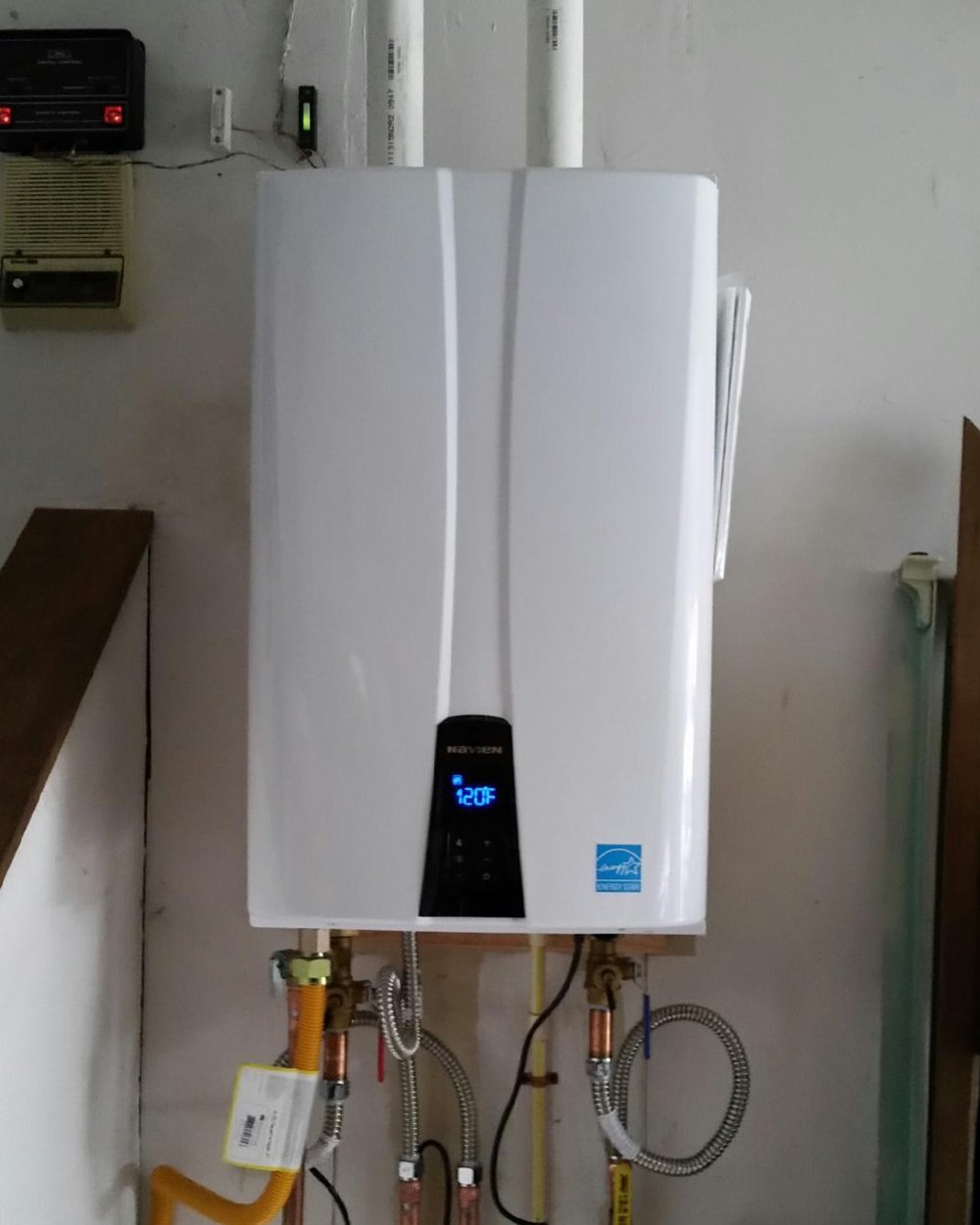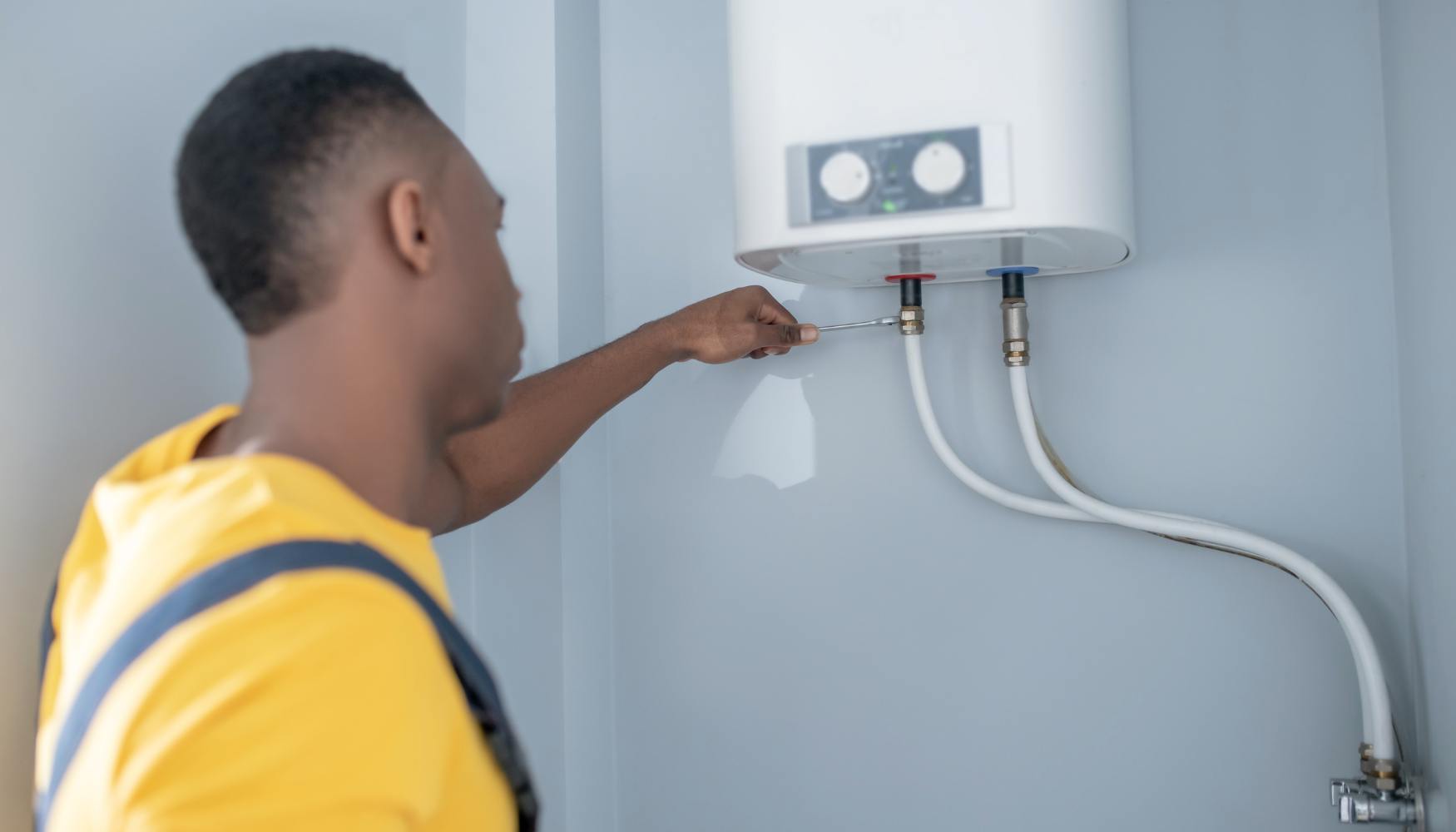Just how do you actually feel on the subject of Why You Should Consider a Tankless Water Heater?

In a world where ease and efficiency reign supreme, it's not a surprise that house owners are constantly on the lookout for smarter methods to manage their home's power consumption and convenience. One technology that has gradually gotten appeal is the tankless water heater. But just what makes these systems stand apart from the standard tank-based designs most of us grew up with? Let's dive in and explore the benefits of tankless hot water heater, helping you choose if it's time to make the switch in your home.
Introduction
Picture this: you step into the shower after a lengthy day, expecting a soothing waterfall of warm water, only to be welcomed by icy droplets since the last individual used everything up. Audio acquainted? Traditional water heaters save a fixed quantity of warm water, suggesting you're at the grace of that tank's supply. Tankless systems, on the other hand, warmth water as needed. Say goodbye to going out mid-shower, no more fumbling with routines just to make sure warm water is offered.
Comprehending Tankless Hot Water Heater
What Are Tankless Hot Water Heater?
Tankless water heaters, often called on-demand or instant water heaters, supply warm water just as it's required. As opposed to saving gallons of pre-heated water, these units kick right into action the moment you switch on the tap. Water passes through a heat exchanger, warming up in real-time, implying you obtain a nonstop circulation of warm water without the requirement for a huge storage tank sitting idly by.
How Do They Differ from Conventional Systems?
Conventional heaters hold a storage tank of hot water, utilizing power to keep that container at a constant temperature. Tankless systems get rid of the standing supply, lowering lost power and the bulky footprint of a huge cylinder. Basically, you're upgrading from a "stockpile" frame of mind to a "made-to-order" approach.
Usual Kinds Of Tankless Devices
Tankless water heaters typically are available in two selections: gas and electrical. Gas designs have a tendency to supply higher flow prices, perfect for bigger households, while electrical models usually offer smaller sized homes and are usually much easier to install. In addition, some systems are designed for point-of-use (serving one fixture) while others can handle the whole home's hot water requirements.
Key Benefits of Tankless Hot Water Heater
1. Unlimited Warm Water Supply
Ever before needed to arrange showers so everybody gets their fair share of warm water? With tankless, that becomes a thing of the past. As long as the heating unit's circulation capability isn't surpassed, you can take back-to-back showers without turning into a popsicle.
2. Energy Effectiveness and Expense Financial Savings
Say goodbye to warming a giant tank's well worth of water and maintaining it cozy all the time. Tankless heating units minimize standby energy losses, which can decrease utility bills. While the first expense may be greater, the long-term cost savings frequently justify the financial investment.
3. Space-Saving Design
If your home is short on storage space, getting rid of the large storage tank frees up useful space. Tankless units are portable and can usually be installed on wall surfaces, tucked away in corners, or set up in tight energy storage rooms without hogging the entire room.
4. Longer Lifespan
A properly maintained tankless water heater can outlast its tank-based relative. Conventional tanks may last 10-15 years, while tankless designs can maintain chugging along for 20 years or even more, making them a solid investment in time.
5. Improved Water High Quality
Storing water in a storage tank can often lead to debris buildup or a somewhat "off" preference. With tankless systems, fresh water is heated up on the spot, lowering the chances of debris accumulation and potentially using cleaner-tasting water.
Factors to consider Before Switching
Though the advantages are compelling, it's a good idea to think about a few elements before totally dedicating.
Preliminary Financial Investment Costs
Tankless heaters generally come with a higher ahead of time price. In between the system itself and possible setup modifications, the preliminary cost could provide you sticker label shock. However keep in mind to see it as a lasting financial investment.
Installation Needs
Relying on your home's facilities, you may require additional electric capability or gas line upgrades. Guarantee you recognize the installation demands and talk to an expert to prevent surprises.
Examining Your Home's Water Use Patterns
If your household at the same time uses several fixtures with high hot water demand, see to it the system's flow rate fulfills your demands. Knowing your use patterns helps you select the best dimension and sort of tankless heating unit.
Maintenance and Treatment Tips
Tankless systems are fairly low maintenance, however they aren't set-it-and-forget-it home appliances.
Routine Cleansing and Descaling
Difficult water minerals can accumulate in the warm exchanger, affecting effectiveness. Normal descaling (often suggested each year) maintains the system running at peak performance.
Yearly Expert Examinations
A yearly checkup from an expert guarantees small problems are captured early. They'll analyze the system's efficiency, seek leakages, and assist maintain ideal efficiency.
Making Sure Correct Air Flow
For gas versions, correct ventilation is essential to securely remove exhaust gases. Make sure airing vent systems are clean and correctly set up to stop any type of potential safety threats.
Comparing Different Brands and Designs
Not all tankless hot water heater are produced equivalent.
Looking Into Trustworthy Manufacturers
Look for respectable brand names with a history of generating top quality devices. A dependable manufacturer commonly provides far better client support and longer warranties.
Reviewing Evaluations and User Responses
Customer testimonials and responses from neighbors or close friends who have actually gone tankless can provide beneficial insights. Occasionally, real-life experiences can be much more telling than advertising and marketing pamphlets.
Installation: Do It Yourself or Expert?
While some house owners relish tackling jobs themselves, tankless setup might not be the best time to break out the tool kit.
Pros and Cons of Do It Yourself Installment
A do it yourself install might save money, but it includes risks. Wrong installment can result in ineffectiveness or safety worries. If you're handy and have experience, it might be practical-- however wage caution.
When to Call a Specialist Plumbing
For the majority of, calling a pro makes certain whatever's done appropriately. A professional plumbing technician understands local codes, sizing demands, and airing vent criteria, reducing the danger of incidents.
Taking full advantage of Efficiency
You have actually purchased a tankless system-- now maximize its effectiveness.
Optimal Temperature Level Setups
Most people set their units in between 120-140 F. Adjusting the temperature level can improve comfort and financial savings. Experiment to discover a wonderful spot that doesn't throw away power.
Coupling With Low-Flow Fixtures
Wish to stretch your system's capabilities? Consider setting up low-flow showerheads and taps. They reduce water usage, enabling your tankless system to deliver a steady stream of hot water without stressing.
Ecological Impact
Tankless hot water heater align with greener living objectives.
Decreased Carbon Footprint
By using much less energy and only home heating water as required, tankless systems can decrease your home's carbon footprint, lowering your environmental influence.
Saving Natural Resources
Less power intake and much less lost warm water translate right into fewer natural deposits being used, an environmental win-win.
That Benefits A Lot Of from Tankless Heaters?
The charm of tankless heaters is that they can suit a variety of houses.
Huge Households vs. Single Occupants
Large households may love the endless warm water supply, while single passengers value the energy financial savings from not heating up an entire storage tank for simply a single person's early morning shower.
Home Owners with Minimal Area
If your home is short on square video, shedding the large storage tank maximizes room for other essentials-- or perhaps just extra breathing space.
Eco-Conscious Customers
Going tankless aligns with environmentally friendly values, ensuring you're not wasting energy or sources.
Future Fads in Tankless Water Heaters
The globe of home appliances is ever-evolving, and tankless hot water heater are no exemption.
Smart Home Integration
Picture adjusting your water heater's temperature using an app or obtaining upkeep notifies on your phone. As wise home tech breakthroughs, we'll see more connectivity and ease.
Advancements in Modern technology
R&D is regularly enhancing heat exchangers, making units extra reliable and resilient. Future models may be also quieter, much more portable, and better matched for differing environments.
Conclusion
Selecting a tankless water heater is greater than simply updating your home's hot water system; it's purchasing lasting comfort, power efficiency, and a greener lifestyle. By considering your home's water usage, bearing in mind installment demands, and dedicating to regular upkeep, you can delight in a consistent stream of warm water without the luggage of a bulky tank. As technology develops, you can eagerly anticipate even smarter, extra effective tankless options that not just make your life easier however likewise profit the world.
Why You Should Consider a Tankless Water Heater for Your Home
Energy Efficiency and Cost Savings
Tankless water heaters, also known as on-demand water heaters, heat water only when needed. This means they don't waste energy keeping a tank of water hot constantly. This efficiency translates into substantial cost savings on your monthly energy bills.
Endless Hot Water Supply
One of the significant advantages of tankless water heaters is their ability to provide a continuous supply of hot water. Traditional tank water heaters have a limited capacity and can run out of hot water, especially during peak usage times. In contrast, tankless water heaters can provide an endless stream of hot water, making them ideal for larger families or homes with high water usage.
Space-Saving Design
Tankless water heaters are compact and take up significantly less space compared to traditional tank heaters. They can be installed on walls, under cabinets, or even outside, freeing up valuable space in your home. This makes tankless water heaters a great option for smaller homes or properties with limited space for a traditional water heater.
Longer Lifespan and Lower Maintenance
Tankless water heaters typically have a longer lifespan compared to traditional tank heaters. They can last up to 20 years or more with proper maintenance. Additionally, tankless systems are designed with replaceable parts, which can extend their lifespan further and reduce long-term maintenance costs.
Environmentally Friendly
Reducing energy consumption not only saves you money but also benefits the environment. Tankless water heaters contribute to a smaller carbon footprint by using less energy to heat water. Their energy efficiency and ability to minimize standby heat loss make them an eco-friendly choice for environmentally conscious homeowners.
Customized Temperature Control
Tankless water heaters offer precise temperature control, allowing you to set the desired temperature to meet your specific needs. This level of customization ensures you always have water at the perfect temperature for your comfort and usage requirements.
https://beantownservices.com/blog/consider-tankless-water-heater-for-your-home

Hopefully you enjoyed reading our section on Pros and Cons of Tankless Water Heater. Thanks a lot for taking a few minutes to read through our blog. Those who appreciated our blog posting if you please do not forget to share it. I am grateful for your time. Please check up our site back soon.
Click Here
Comments on “Showing The Advantages Of Instant Water Heaters”